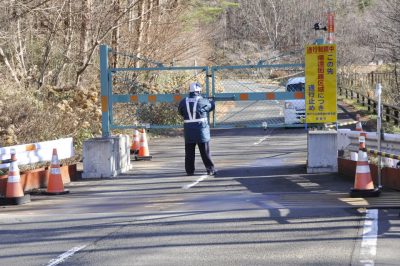Nuclear Power Plants: The NRC’s “Risky Rule Change” Ignores History. More Nuclear Emergency Planning Needed, Not Less.
Statement by Dr. Edwin Lyman at the Union of Concerned Scientists

All Global Research articles can be read in 51 languages by activating the Translate Website button below the author’s name.
To receive Global Research’s Daily Newsletter (selected articles), click here.
Click the share button above to email/forward this article to your friends and colleagues. Follow us on Instagram and Twitter and subscribe to our Telegram Channel. Feel free to repost and share widely Global Research articles.
***
The U.S. Nuclear Regulatory Commission (NRC) approved a rule today that will allow for the licensing of new nuclear reactors without requiring those reactors to have offsite emergency plans in place should disaster strike.
Below is a statement by Dr. Edwin Lyman, the director of nuclear power safety at the Union of Concerned Scientists (UCS).
“Past natural and human-made disasters have taught us that having a robust and workable emergency plan in place is the key to minimizing human suffering and loss of life if the unthinkable happens. The NRC’s reckless decision today flies in the face of that experience. Concerns with the rule expressed by the Federal Emergency Management Agency and other authorities demonstrate how out of step the NRC is with experts on this issue. Coupled with other troubling regulatory changes that the NRC has already made or is considering, this new rule will only increase dangers for the public from the next generation of nuclear plants. Additionally, the absence of offsite emergency planning will create burdens in the aftermath of a nuclear plant accident, extreme weather event, or terrorist attack that will fall disproportionately on those people and communities with the fewest resources.
“Some nuclear power advocates downplay the health risks of ionizing radiation, asserting that emergency evacuations following nuclear disasters are more harmful than exposure to the radiation itself and pointing to the casualties following the 2011 Fukushima disaster evacuations in Japan as an example. But the remedy for poorly executed evacuations is better emergency planning, not the elimination of emergency planning altogether.
“The cost of preparing for emergencies is relatively modest. And yet nuclear industry proponents have pushed to change the rules to facilitate constructing new nuclear reactors anywhere, even in densely populated areas where timely emergency evacuations might be extremely difficult or even impossible. People everywhere need to be aware of the NRC’s dangerous decision and its implications for their health and safety.”
*
Note to readers: Please click the share button above. Follow us on Instagram and Twitter and subscribe to our Telegram Channel. Feel free to repost and share widely Global Research articles.
Featured image: Photo taken on Dec. 6, 2020, in Iitate, a northeastern Japan village near the crippled Fukushima Daiichi nuclear power plant, shows a fence set up on a road to bar entry to an off-limit area ahead of the 10th anniversary of the earthquake-tsunami disaster and the subsequent nuclear crisis. (Kyodo)

